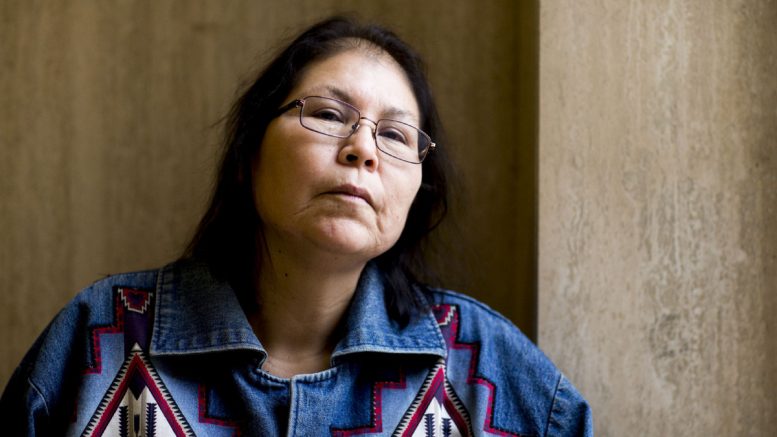“Whether we succeeded or didn’t succeed, the exercise now is for Canadians, all Canadians, to engage in a healing process to examine the harm that was done, not just to First Nations, but to a good number of caring, non-First Nations people who took on the adoption of Indian children or permanent guardianship, and who also were deprived of information that would help them in their care,” the survivors’ lead lawyer, Jeffery Wilson, told the Star.
“The judge had a record of evidence that made it clear that harm occurred, significant, irreparable harm, and that there were steps that could have been taken and for Canada to say that it wouldn’t have made a difference is almost as if you’re saying that what happened to the children doesn’t matter.”
The crux of the lawsuit revolved around what is known as the 1965 Canada-Ontario Welfare Services Agreement, when Canada agreed to pay Ontario for the per capita cost of extending some provincial welfare programs to “Indians in the Province.”
The lawsuit covers the period from December 1965, when the agreement was signed, to December 1984, when Aboriginality was made an important factor in child protection and placement practices through Ontario’s Child and Family Services Act.
Belobaba found that as part of the old agreement, Canada had a duty to consult the Indian bands about extending child welfare programs, but had failed to do so.
“I find that no Indian Bands were ever consulted before provincial child welfare services were extended to the reserves and no Bands ever provided their ‘signified concurrence’ following such consultations,” Belobaba wrote.
“The evidence supporting the plaintiff on this point is, frankly, insurmountable. In any event, Canada offered no evidence to suggest otherwise.”
The Canadian government then attempted to argue before Belobaba that even if it had consulted with the Bands, there is no evidence that the bands would have provided meaningful advice or ideas to prevent the children from losing their indigenous identity.
“Counsel for Canada put it this way: ‘Would life have been different had they been consulted?’ This is an odd and, frankly, insulting submission,” Belobaba wrote.
Based on the evidence, the judge found that had Canada consulted the bands, the government would have been provided with many suggestions on how to preserve the child’s cultural identity and ensure that they were aware of all the federal benefits to which they were entitled as they got older.
“If these ideas and suggestions had been implemented as part of the extension of the provincial child welfare regime . . . it follows in my view that it would have been far less likely that the children of the Sixties Scoop would have suffered a complete loss of their cultural identity.”
The class-action lawsuit was heard over three days in a Toronto courtroom last year, at what is known as a summary judgment proceeding, where the plaintiffs argued they had enough evidence against Canada to forego a trial.
The government acknowledged in court in December that indigenous children placed in non-indigenous care would have lost opportunities to learn about their language and culture, and that many children in those situations “experienced psychological or other personal harm.”
But it also argued that it is wrong to impose present-day standards of care for indigenous children on the ’60s Scoop practices.
“Canada’s submissions missed the point,” the judge ruled. “The issue is not what was known in the 1960’s about the harm of trans-racial adoption or the risk of abuse in the foster home. The issue is what was known in the 1960’s about the existential importance to the First Nations peoples of protecting and preserving their distinctive cultures and traditions, including their concept of the extended family.
“There can be no doubt that that was well understood by Canada at the time.”
The federal government, under both the Conservatives and the Liberals, had tried for nearly a decade to have the lawsuit thrown out.
“They were like soldiers without a conscience, taking orders without a conscience,” Wilson said. “That’s what I would say about Canada’s conduct over the last eight years.”
Justice Department lawyers made a last-minute attempt last week to delay the release of the ruling, asking Belobaba to hold it in abeyance because Indigenous Affairs Minister Carolyn Bennett had announced she wanted to launch negotiations for a settlement with ’60s Scoop survivors across the country.
The plaintiffs refused to consent to any delay, and the government withdrew its request on Friday.
Wilson said his clients have always been willing to sit down with the government, something they’ve wanted to do since they launched their lawsuit in 2009. He said the real test now will be whether the government seeks to appeal Belobaba’s decision to the Court of Appeal. It has 30 days to signal its intention.
Belobaba said the plaintiffs are entitled to their costs for the summary judgment motion, indicating they “are likely to be substantial.”
Source: www.thestar.com




